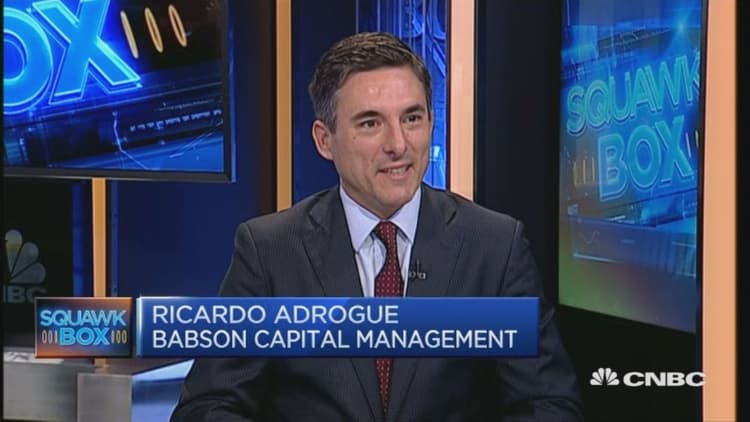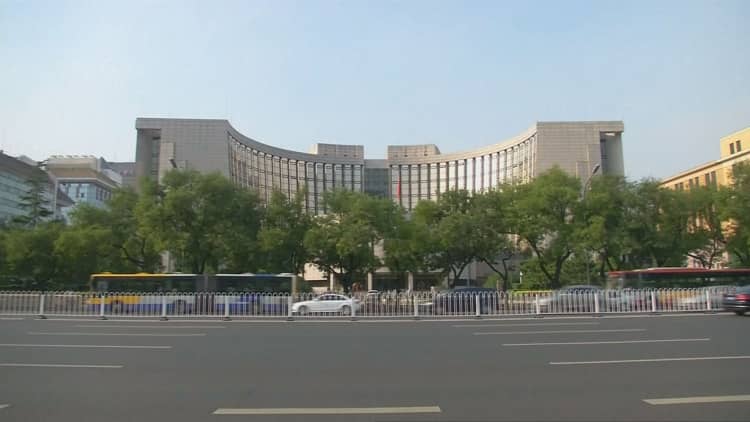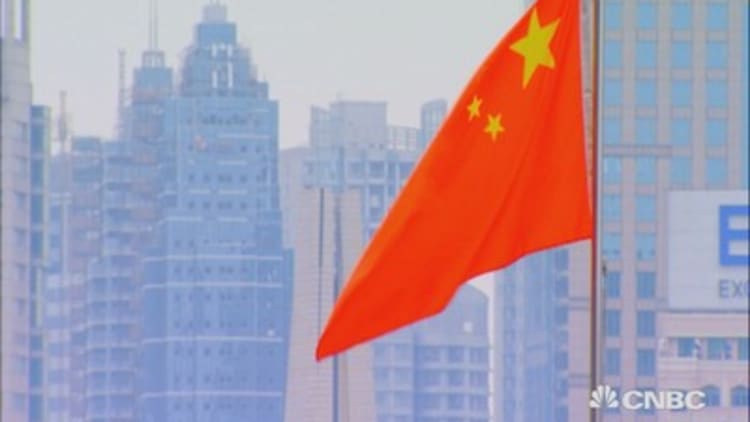


China has a debt problem, and it's likely much worse than most statistics demonstrate.
Recent reports point to an ongoing effort by Beijing to tightly control the prevailing storyline about its economy, including recent revelations about the central government pressuring economists to use a more upbeat tone. Even bearish predictions about the Chinese economy have at least pretended that economic data from the country are reliable. And those numbers are now more in doubt than ever.
China's total debt-to-GDP ratio is 240 to 270 percent, depending whom you ask, and that's a sizable increase from the roughly 150 percent of a decade ago. And that jump has occurred while China's GDP has grown strongly — meaning the debt is ballooning wildly.
"Historically when you have that sort of expansion of credit, … it generally leads to financial turbulence," said Nicolas Veron, a visiting fellow at the Peterson Institute for International Economics. "And China has had a rapidly expanding GDP, too — so it's just dizzying."
China is stepping on the gas pedal, they put jet fuel in the gas tank, and the car does nothing but rev the engine and coast forward slower and slower. All this credit is accomplishing is a slower rate of decline.Christopher Baldingeconomist, HSBC School of Business, in a blog post
It's not the absolute debt levels making economists bearish on China, however, it's their rapid increase. (China's debt levels are still not as high as those in the United States, where total credit-to-GDP stands at well over 300 percent. That U.S. figure includes all debt, not just the debt held by the federal government.)
Some have posited that China is getting its appetite for debt under control, but that may not be true. Moody's reported at the end of April that it saw overall leverage rising, and the Chinese shadow-banking sector expanding at a fast rate. Shadow banking, the aggregate term for unregulated credit from nonbank entities, has long been a specter over China's impressive growth.
Worse still is the way in which all of the new leverage is affecting China's real economy. In fact, all of the easy money to households and companies is providing less and less real stimulus: China's current-price GDP rose about 4 trillion renminbi ($614 billion) in 2015, while total social financing ("TSF," an official Beijing statistic designed to fully measure debt) saw a more than 15 trillion renminbi gain ($2.3 trillion) in the same year.
In other words, all that new money is not being spent on growing the economy — with much of it likely spent on servicing existing debt — and China's GDP growth continues to decelerate.
"China is stepping on the gas pedal, they put jet fuel in the gas tank, and the car does nothing but rev the engine and coast forward slower and slower. All this credit is accomplishing is a slower rate of decline," Peking University HSBC School of Business economist Christopher Balding wrote in a recent blog post.
And that's taking official data at face value.
"TSF may actually understate the true amount of leverage in the system, because it excludes various forms of shadow banking activities that are expanding rapidly," Michael Taylor, a Moody's managing director and chief credit officer for Asia Pacific, said in an announcement from the firm.
But does it matter?
Still, it's not clear that any of this is pointing to the "ticking time bomb" that some Western investors have predicted.
It will definitely cause some headaches for Chinese lenders in the coming years, but several economists told CNBC that predictions of a financial crisis misunderstand how China's economy and politics are designed to operate.
"The primary goal of the financial system as a whole is not to make money, it's to obey instructions: The bulk of it is politics first, and profit second," said Derek Scissors, a scholar for the American Enterprise Institute, who added that he doesn't buy "the collapse argument."

That is, financial institutions, state-owned enterprises and even many "private" firms act, at the end of the day, as an extension of Beijing. So loans and debts, some argue, are really all items on the same consolidated balance sheet.
"It can be netted out to a certain degree," Veron said, adding that China has a history of restructuring the debts in its economy.
And because there's a political directive to maintain social stability — a key tenant for Chinese leadership — lenders may likely allow for debt restructuring in a way that the system in the West would not. So the "time bomb" might not explode anytime soon.
"I'm sanguine that you won't see financial instability of the type of 2007-2008 in the North Atlantic crisis," Veron said. "The instability piece was linked to the fact that we have essentially market-driven financial systems, and that's just not the case in China."
That's not to say that specific shorts on China are likely to fail: Irrespective of whether there will be a full-blown crisis, bets that the renminbi will weaken may come through as the currency continues to feel international pressures.





